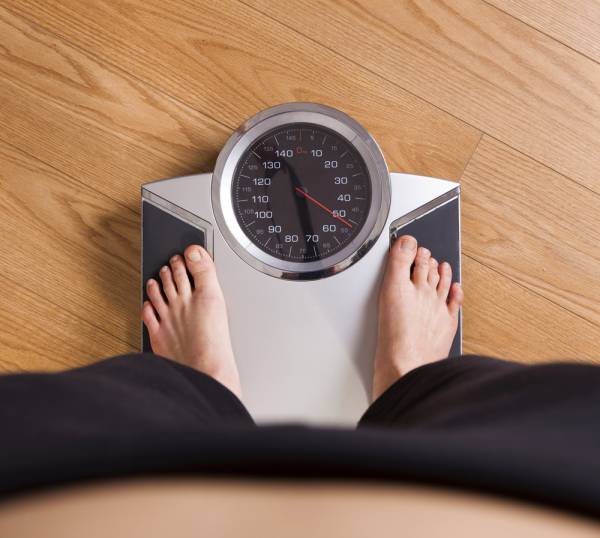There is an area of combative sports that all competitors have to face and none look forward to. It could be referred to as the single most difficult part in partaking in a combative sport. I am speaking about cutting weight. Cutting weight is a skill unto itself and is part of the job for professional fighters. Fighters who agree to compete at a specific weight class are expected to show up and make weight. Failure to do so shows a level of unprofessionalism and laziness that is not tolerated within the professional fighting world.
For those readers unfamiliar with the term, cutting weight is the practice of rapid weight loss prior to competition. Fighters dehydrate themselves in order to compete within a specific weight class. Individuals can lose up to 30lbs within a 48-hour period. In a professional bout, after weigh-ins, fighters are given 24 hours to rehydrate before the competition. This means that a fighter weighing in at 170lbs on Friday could show up to the Saturday fight weighing 190 or 200 lbs.
Weight loss of this magnitude can create a huge advantage for the competitor and have a large effect on the outcome of the fight. When fighters cut weight, they do so in order to gain a size advantage over their opponent. In the realm of professional fighting, size does matter. The bigger you are, the harder you hit, the harder you are to hit, and the more your attacks exhaust your opponent. The fighter who masters how to effectively cut weight will always have the upper hand.
As mentioned before effectively cutting weight is a skill. There are many techniques used to dehydrate the body and in my experience every fighter has his or her own routine to lose the weight. Techniques include low intensity exercise while wearing a sauna suite, sitting in a sauna, Epsom salt baths, laxatives, diuretics, and decreased water intake. Regardless of the techniques utilized there are numerous risks associated with losing large amounts of weight in a short amount of time. Some of these risks include poor performance, elevated heart rate, increased blood pressure, and increased risk of injury. Cutting weight should never be attempted without a knowledgeable coach and medical supervision.
Since your body is made mostly of water, when dehydration of this level occurs you put it into a state of massive shock. If there is one thing your body hates, its being dehydrated. Everything stops functioning the way it should and you become tired, weak, and brittle. Even performing seemingly simple tasks takes the life out of you. Fighters have to make sure they know exactly how much weight they can cut and put back on to ensure an optimal performance. It’s terrible to see an experienced fighter cut too much weight and lose the bout because of it.
In amateur fighting cutting weight becomes even more dangerous. Amateur fighters are expected to make weight and compete within several hours of weigh ins. Due to the short amount of time between weigh in and competition, amateur fighters need to take every precaution they can to avoid cutting too much weight, for both health and performance reasons.
Below are some tips that can help you make weight for an amateur bout:
1. Eat Clean
If fighting is a goal then you must eat healthy and stay close to your competition weight. There is no excuse whatsoever. Eating healthy is part of the job description not an option. If you are serious about being an athlete, your career starts with what you fuel your body with. I recommend staying within five to ten pounds of your competition weight at all times. If you are unsure on what to eat, educate yourself through reading, talk to your coach, and schedule an appointment with a nutritionist.
2. Cut the Weight Slowly
 Whatever you do don’t leave all your weight on until the last week of the fight. Cutting ten pounds of water weight before an amateur bout is foolish and will probably land you in the hospital. Make sure to start your dieting at the beginning of the fight camp and avoid water-retaining ingredients such as sodium. Also make sure you constantly check your weight. This will allow you too get an idea of how much weight you lose on a daily basis. The more information you have about how your weight fluctuates the easier it will become to manipulate your weight in the future.
Whatever you do don’t leave all your weight on until the last week of the fight. Cutting ten pounds of water weight before an amateur bout is foolish and will probably land you in the hospital. Make sure to start your dieting at the beginning of the fight camp and avoid water-retaining ingredients such as sodium. Also make sure you constantly check your weight. This will allow you too get an idea of how much weight you lose on a daily basis. The more information you have about how your weight fluctuates the easier it will become to manipulate your weight in the future.
3. Stay Hydrated
During your fight camp make sure to drink water all the time. If you are training twice a day you must consume a lot of water. Only begin to cut back your water intake a few days before the fight. Remember dehydration equals a weak body. The last thing in the world you want is to feel weak when fighting someone. I guarantee the outcome will not be in your favor.
Photo 1 by fightlaunch (Flickr: WEC 47 Weigh Ins) [CC-BY-2.0], via Wikimedia Commons.
Photo 2 courtesy of Shutterstock.






